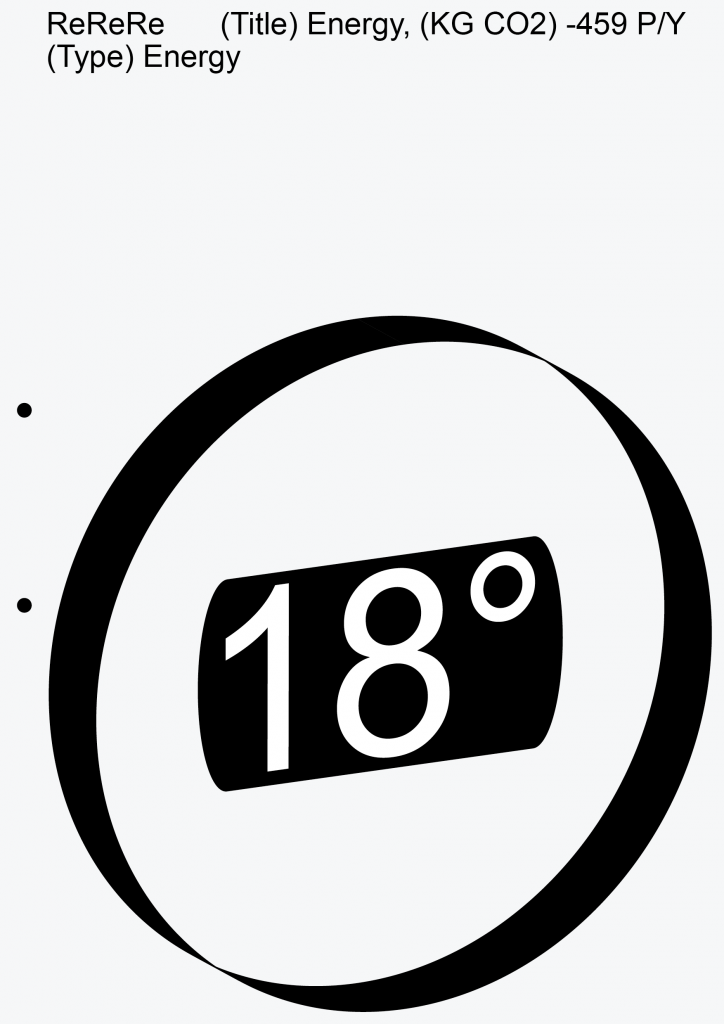
(ReReRe) Energy
(Impact) -459 KG CO2 P/Y
(Date) 28.04.2022
(Author) Loudi Langelaan
(Illustration) Jelle van Bouwhorst
About 70 percent of Dutch households have a contract with so-called green energy. Yet sustainably generated energy remains below 10 percent. This puts the Netherlands at the very bottom of the EU rankings.
Rethink
Instead of the energy suppliers here having invested in generating renewable energy, they are buying certificates from Norway, where hydroelectric power plants have been supplying the country with green energy for decades.
Yet Norwegian green energy is not being supplied to the Netherlands.
In fact, in 2015 and 2016, there have been three large coal-fired power plants added here. These provide our power. And of the ‘sustainable’ energy that is generated in the Netherlands, the vast majority comes from the co-firing of (woody) biomass.
On paper this is CO2-neutral, but experts say it causes deforestation, air pollution and CO2 emissions. It takes years for growing forests to absorb the amount of CO2 released by (wood) combustion.
And then there’s gas. The other half of the energy bill. For the boiler and the stove. A big polluter and a huge issue due to shortage in our world. By taking gas from Russia, we’re actually investing in the war in Ukraine. Importing Lng from the United States is not environmentally friendly due to the high risks of methane leakage. The EU wants agreements to be made to reduce leakage, but that comes at the expense of speed.
Even though stopping all contracts with Russia seems like the right thing to do, it would give Gazprom the power to resell their gas for higher prices. It’s hard to predict how these situations will develop.
Hopefully green (hydrogen) gas, heat networks (from geothermal energy) and electric heat pumps will replace natural gas in the future, but that’s still a huge road ahead.
Read here what you can do until then to save energy and gas.
Repurpose
Computers, phones, the espresso machine, the refrigerator, the lights, the kettle, the heater. These are the energy consumers in the office. Which we really need after all.
Redesign
u-inc has moved to a new studio. A smaller space, so the heating can be used less. By turning the thermostat down a degree, from 19 to 18 degrees, we can save 6 percent of gas consumption on average. We can get used to wearing an extra sweater.
Also taking out the plugs in the socket of appliances that we do not use. Secretly the ‘standby consumption’ of all those devices can really add up.
To make it easy on ourselves, we put the computers we use during the day in a multiple socket and unplug them when we go home. We turn on the dishwasher only when it’s fully loaded and run the eco-program. Unfortunately it has energy label F, so maybe the landlord wants to replace it some time. The fridge has label A++, and the oven A+. We choose LED lighting and make sure that we never have any unnecessary lights on.
The energy we do use, we want to use as green as possible. We switch from Green Choice to Pure Energie, which is at the top of the rankings of sustainable suppliers. The suppliers who score high are actively working on the transition to a sustainable energy supply: for example, they produce green energy themselves, and don’t buy it through shady certificates.
Pure Energie develops sustainable energy projects in the Netherlands together with local energy cooperatives: 100 percent sun and wind, no biomass. Natural gas is ‘Co2-compensated’. This remains a tricky construction: money goes to a project to save CO2 elsewhere, and that ‘compensates’ emissions here. Net, of course, that still means emissions.
Another modern addiction: electronics. To make our energy consumption as sustainable as possible, we do two things: we choose a green supplier, and we start saving energy.
#rerere is our action program to rethink, repurpose and redesign our social and ecological footprint for the better. you can find all our #rereres here. We hope that it inspires you to take action. Because the only way to create a future that includes you plus new generations to come is when we all take action. #timeisup